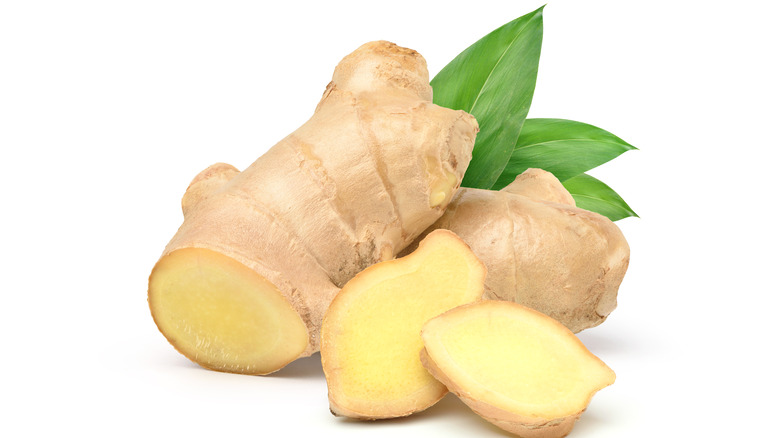How Ginger Can Help If You Have Osteoarthritis
Osteoarthritis happens when the cartilage between bones wears down, leading to pain. It's actually the most common kind of arthritis, according to the Mayo Clinic, and can affect the knees, hips, spine, or even the hands. A degenerative condition that gets worse with time, the main treatment for osteoarthritis is painkillers to dull the unpleasant sensation.
But some research points to the possibility that ginger, that common spicy root that is used in everything from Christmas cookies to ginger ale, may have a protective effect against osteoarthritis. A 2001 study published in the journal Arthritis and Rheumatism, for example, did a randomized, double-blind test on 247 people with osteoarthritis of the knee and concluded that ginger extract had a significant effect on reducing the pain associated with the condition. A 2015 meta-analysis published in the journal Osteoarthritis and Cartilage further backs up this finding, and showed that osteoarthritis patients that took ginger had lower rates of pain and disability than those that did not in the five different studies they analyzed.
How does ginger lessen the pain of osteoarthritis?
Ginger has a long history of use as a natural anti-inflammatory treatment, and it is primarily this action that is thought to be responsible for the pain-relieving effect it seems to have in the case of osteoarthritis. A 2020 clinical review published in the journal Phytotherapy Research, found that both oral and topical applications of ginger can relieve pain. They found that even massages with ginger-infused oil were able to show a clinical reduction of pain, which they attributed to compounds within the plant.
A 2016 study published in the journal PharmaNutrition found that it is the essential oils of ginger, called gingerols, that are primarily responsible for this effect. Remarkably, the scientists found that not only did these essential oil compounds lessen inflammation and therefore pain, but they also seemed to protect joints from injury.
Not all studies on ginger and arthritis pain have had such glowing results, however. A 2020 meta-analysis published in the journal Pain Physician, looked at a handful of different clinical trials on ginger for osteoarthritis of the knee and concluded that there is "insufficient evidence" that it works better than a placebo for this kind of pain relief.


